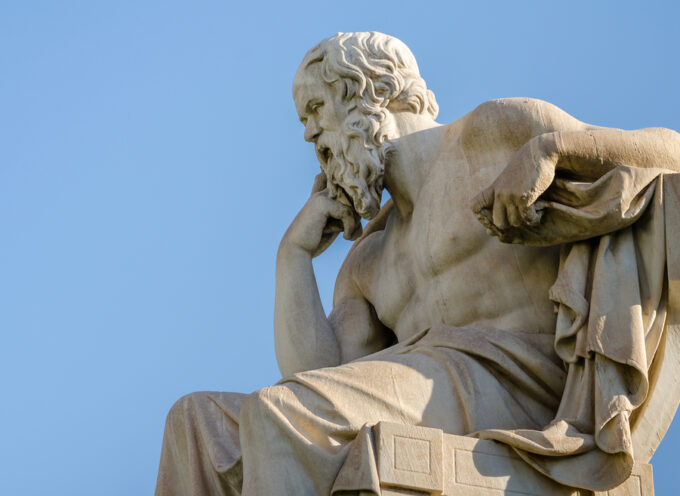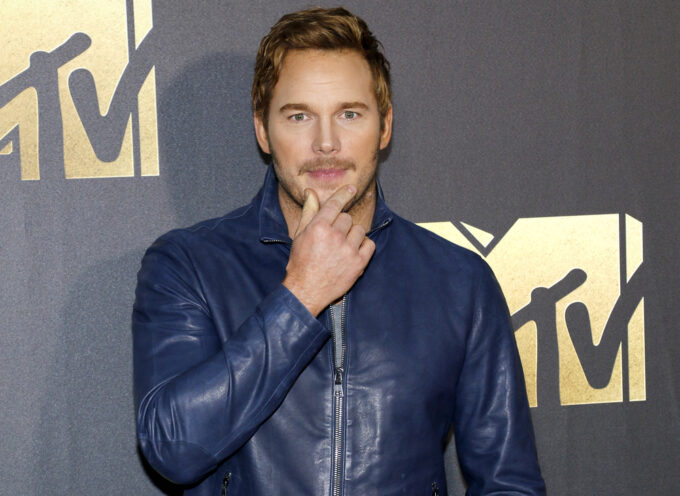Here are seven sets of resources for pastors, professors, and students who wish to build their “theology and culture” library. I’ve included a variety of resources, some of which represent views I oppose. However, the majority of the resources fit my preferred “Reformational” model.
1. Surveying Different Views of Christianity and Culture
Richard Niebuhr’s Christ and Culture is a minor classic in 20th century theology; it provides a historical classification of typical Christian views of the relationship between “Christ” and culture. In combination with Niebuhr’s book, you’ll want to read D. A. Carson’s Christ and Culture Revisited and Craig Carter’s Rethinking Christ and Culture. Carson critiques Niebuhr’s theological framework and argues for a more cruciform understanding of the Christian’s place in culture. Carter also critiques Niebuhr’s theological framework as well as Niebuhr’s privileging of Christendom in the conception of his categories. Jamie Smith’s brief article critiques Carson from a Reformational point of view.
2. Introducing a Reformational Theology of Culture
Al Wolters’ Creation Regained is an extraordinarily lucid conceptualization of the Reformational worldview; it can be employed easily for a preacher or professor who wishes to provide the undergirding for a Reformational understanding of culture. My Every Square Inch is intended as a lay-level introduction to cultural engagement from a Reformational perspective. Finally, Anthony Bradley’s Black and Tired is a wickedly smart and very accessible collection of short articles commenting on cultural issues from the perspective of a Reformed African-American public intellectual.
3. Employing the Head and the Heart
When building a theology of culture, we should take care to emphasize the head and the heart. Abraham Kuyper’s Lectures on Calvinism is a slim but powerful volume arguing that Reformational Christianity provides a sturdier worldview than modernism, and showing some ways that Christian convictions should shape our approach to various spheres of culture: religion, politics, science, and art. Jamie Smith’s Desiring the Kingdom goes beyond Kuyper’s worldview approach to show how and why human beings are “lovers” and not merely “thinkers.” Although Smith’s book criticizes the shape of certain Kuyperian approaches, it is best understood as an insider’s attempt to help make the Kuyperian tradition healthier.
4. Contextualizing Theology
Stephen Bevans’ Models of Contextual Theology is a very helpful survey of typical models of contextualization. After digesting Bevans’ survey, I suggest “chasing” it with David Clark’s “Theology in Cultural Context,” which is the third chapter of his theological method text, To Know and Love God. I like Clark’s “dialogical” model for contextualization because it is premised upon biblical authority in theology and critical realism in epistemology. I have set forth a very similar view in the first chapter of A Theology for the Church. Finally, Carl Ellis Jr.’s Free at Last? The Gospel in the African-American Experience; although Ellis wrote this book for African-American Christians, it is also a very helpful resource for white Christians because it helps us understand African-American history and culture from the perspective of a respected black leader and theologian. For more resources from Dr. Ellis and his wife, Dr. Karen Ellis, click here.
5. Making Culture and Stewarding Culture
Andy Crouch’s Culture Making is an engaging and persuasive treatise on the Christian community’s calling to “make culture” rather than merely “engage the culture.” James Davison Hunter’s To Change the World argues that Christian strategies for “changing the world” are doomed from the start, because they fail to recognize the role of the cultural elite in fostering such change. I pair these two books not only because they cover some of the same terrain, but because Hunter criticizes Crouch’s book. After reading the two books, including Hunter’s criticisms of Crouch, you’ll want to read Crouch’s two fine replies here and here. Makoto Fujimura’s Culture Care argues that culture is “not a territory to be won or lost but a resource we are called to steward with care.”
6. Cultivating a Powerful Witness from a Position of Cultural Weakness
James M. Washington’s A Testament of Hope is an edited collection of Martin Luther King, Jr.’s sermons, speeches, essays, interviews, and autobiographical reflections. Through these, we are able to “hear” what MLK had to say about race, racism, nonviolence, social policy, integration, black nationalism, and the ethics of love and hope. This book should be read from stem to stern, even though it is 700+ pages. John Perkins, Let Justice Roll Down. John Perkins should be recognized as a national hero for his work in racial reconciliation and community development. The blurb on the front cover of the book encapsulates the power and profundity of his life story: “His brother died in his arms, shot by a deputy marshal…he was beaten and tortured by the sheriff and State Police…but through it all he returned good for evil, love for hate, progress for prejudice and brought hope to black and white alike.” For more resources from John Perkins, click here. Finally, my brief essay, “Powerful Witness from a Position of Weakness.”
7. Making It Missional
Lesslie Newbigin’s Foolishness to the Greeks is a call for Christians to bring the gospel into a missionary encounter with the West, just as they have sought to do in the East and the South. Michael Goheen’s A Light to the Nations is a sophisticated (but lucid and very accessible) missional ecclesiology that starts with Israel rather than with the New Testament. It combines the disciplines of biblical theology, systematic theology, and missiology. Tim Keller’s Center Church is a comprehensive and accessible text for the pastor or church planter who wishes to bring his church into a missionary encounter with Western culture.
Subscribe
Never miss a post! Have all new posts delivered straight to your inbox.








Dr Ashford, are you familiar with the writings of Australian pastor, Mark Sayers? His books would provide a great addition to your list especially around the intersection of culture and the church. It’s brilliant stuff. Thank you for your work.
Rod, thank you for the “heads up.” I’ve not read Sayers yet. It sounds like I should get started reading him. 🙂
Hi Rod, Are you the Rod McWilliams who I met many years ago vua John & Janice Teunis? If so, I’d like to hear from you. God bless, Yoel (Joel) Seton. Yoel@fastmail.net
Dr. Ashford, I just want to say thank you for who you included in this article. It mean alot to me, more than you know.
Thank you Kyle!
Thank you for this list, Dr. Ashford. These are great resources for delving into the pool of theology and culture. I actually read Crouch’s “Culture Making” as a required read in my undergrad for a gateway seminar. It enlivened me to begin taking an interest in developing a stronger theology of culture. I’m curious if you have had the opportunity to review and critique VanDrunen’s “Living in God’s Two Kingdoms” (2010) and Edgar’s “Created & Calling: A Biblical Theology of Culture”? Again, thank you for this article!
Zackary, hi and thank you! I have not reviewed VD’s or Edgar’s books. I haven’t read Edgar’s book yet, but I know that I will agree with his approach broadly. As for VanDrunen, he is a proponent of the Two Kingdoms view, with which I disagree. I haven’t reviewed his book, but I have criticized the Two Kingdoms approach (which I called the “Grace alongside Nature” view) in chapter 2 of my book, One Nation Under God.